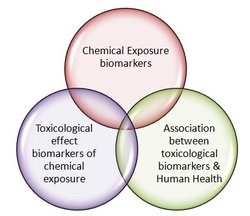Toxicological Research

Research in toxicological risk assessment has a preventive focus, and works to improve the knowledge of when exposure to chemical substances become too large and thus constitute a health risk. The research in toxicological risk assessments form the basis of relevant political decisions and contribute to a healthier environment. The research is undertaken to answer questions like:
- Which groups are exposed to harmful pollution through air, food and consumer products?
- How and when are cellular processes and DNA damage associated with chemical substances?
- Is toxicological damage transferred from mother to child during pregnancy?
- What environmental exposures may affect human reproduction, fertility and child health?
Endocrine disrupting chemicals (EDCs) are found everywhere in our environment such as food, water and consumer products including cosmetics and personal care products.
Concern about the impact of EDCs on human health is increasing. For a number of years, research has focused on the influence of EDCs on development and function of the male reproductive system but in recent years, research also included the suspected potential effects on the female reproductive system, the immune system, development of metabolic syndrome (including obesity) and neurodevelopment. Since hormones are important factors in embryonic development the fetus is significantly more vulnerable to exposure to EDCs than adults.
Toxicology research in EDCs helps to assess the substances that may pose health risk and therefore should be phased out of production. An example is the phase-out of the two pesticides prochloraz and fenarimol which was launched after research evidence on their toxicological effects in vitro and in vivo in rats.